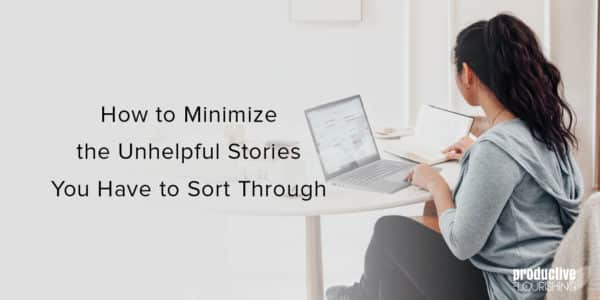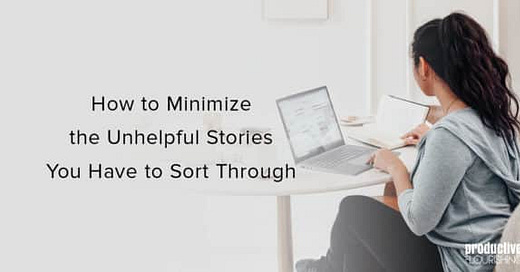How to Minimize the Unhelpful Stories You Have to Sort Through

You may have heard of people going on a media diet for productivity reasons. The basic idea is that a lot of our time and bandwidth can be spent choosing what not to consume, so eliminating the inputs frees up mindspace and time to do the stuff that matters most.
Seth got me thinking more about this with his post the asymmetry of decay:
When we curate our media intake (and create our own) and when we decide what story to tell ourselves (instead of accepting the story of someone with different objectives than ours), we can rewire our inputs and the way we process them.
Given that one of the bugs we all carry with us is a negativity bias, the negative stories, limiting beliefs, and unhelpful conventions seep into us. If you limit the inputs, you also limit your exposure to rotting information.
Yes, you miss the good stories, too, but given media cycles and human patterns, the juice of the good stories is often not worth the squeezing it takes to get them. It's often better to dump everything and then rebuild with just the good stuff that you miss and that nourishes you, rather than sorting the stream that society hurls at you.
And, given that story drives us, the best thing we can do is choose which stories we consume and which we create.
Most of us don't try to sort through the parts of rotten milk that are useful - we just get rid of the whole jug. When it comes to stories, content, and canoes, the same tactic is often warranted.
Rather than purging one rotten item at a time, consider limiting what comes in in the first place. Yes, you'll have more time and bandwidth, but the most important thing you might get back is control over your own narrative.




